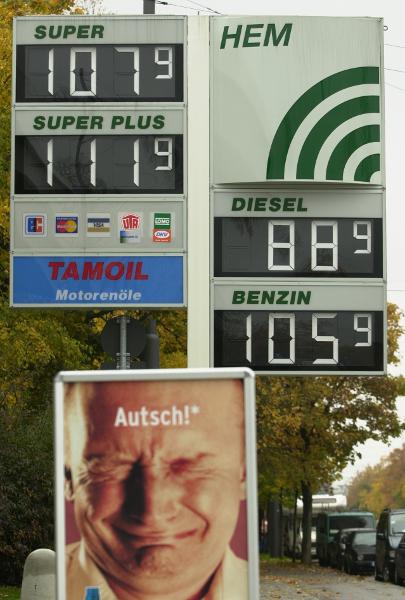Source

Source: (c) picture-alliance / Sven Simon
Despite the outrage and protests against the new eco-tax in the summer of 2000, the Schröder administration stood by the unpopular measure, not least because the government was able to put the additional revenue into the pension fund and thereby defray the costs thereof. In 2001, in order to compensate for higher energy costs – caused mostly by rising oil prices on the world market – the government introduced a commuter tax break on all forms of transportation. In the winter of 2000-01, it also offered a one-time heating subsidy to members of low-income groups. One point was often overlooked in the public debate on the eco-tax: base-level fuel prices were beyond the federal government’s control, since it could not influence oil output, the Euro/U.S. dollar exchange rate, or crude oil speculation on the financial markets.

Source: (c) picture-alliance / Sven Simon